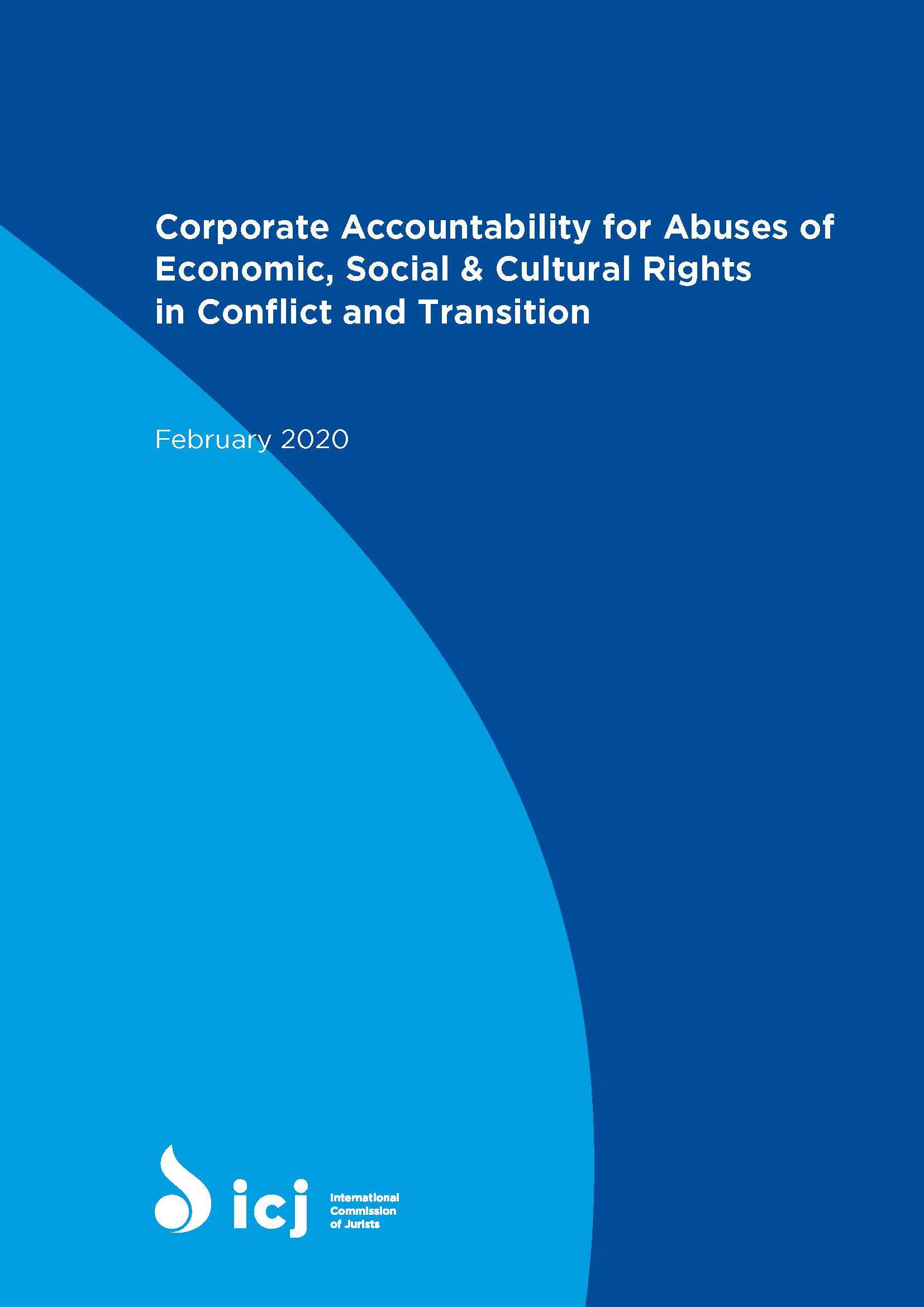Today the ICJ published a guide on Corporate Accountability for Abuses of Economic, Social & Cultural Rights in Conflict and Transition.
Around the world, businesses frequently operate in areas or regions in which armed conflict, internal disturbances or upheaval, severe authoritarianism, or other crises are either continuing or have recently ceased.
It is now common for societies seeking to move past such periods to employ transitional justice processes and mechanisms in efforts to build constitutional democracies grounded in the rule of law, protection of human rights and the fair administration of justice.
At times businesses are involved, either directly or in complicity with State agents, armed groups or other actors, in human rights violations or abuses, which occur during or after such conflicts or authoritarian settings.
These abuses may be of civil and political rights but they also often implicate economic, social and cultural rights. Failure to properly consider abuses of economic, social and cultural rights in transitional justice processes, including those caused or contributed to by businesses, can render their outcomes less effective and unsustainable.
All transitional justice processes and mechanisms must be grounded in the principles of international law.
This guide therefore sets out the core principles of international human rights law relating to: Transitional Justice; Economic, Social and Cultural Rights and Business and Human Rights, clearly describing how these three sets of principles interact and coalesce.
This guide will therefore be particular useful to transitional justice practitioners in ensuring that the design and implementation of transitional justice processes and mechanisms are fully consistent with international human rights law.
It also provides guidance to businesses in considering how to ensure compliance with international human rights law when they are operating in situations where conflict is occurring, likely to occur or recently has occurred.
In addition, because of their severe vulnerability of children to rights violations in such contexts, the guide includes a specific chapter focuses on corporate accountability for abuses of children’s rights in conflict settings.
The guide draws on examples of best practice throughout and includes case studies and examples from a wide range of countries including: Argentina; Colombia; East-Timor; Mauritius; Myanmar; Liberia; South Africa; Sierra Leone; Uganda and Tunisia.
Read also
The guide is best read with the following ICJ publications:
The ICJ’s Practitioners Guide on The Right to a Remedy and Reparation for Gross Human Rights Violations; the ICJ’s Practitioners Guide on Adjudicating Economic, Social and Cultural Rights at National Level; The ICJ & Child Rights International Network’s Practical Guide for Non-Governmental Organizations on how to use the United Nations Committee on the Rights of the Child’s General Comment No. 16; and the ICJ and UNICEF’s Practical Guide for States on how to implement the United Nations Committee on the Rights of the Child’s General Comment no. 16.
Download
Universal-ESCR accountability guide-Publications-Reports-Thematic report-2020-ENG (the full guide, in PDF)
Universal-ESCR accountability guide summary-Publications-Reports-Thematic report-2020-ENG (the executive summary and overview, in PDF)

